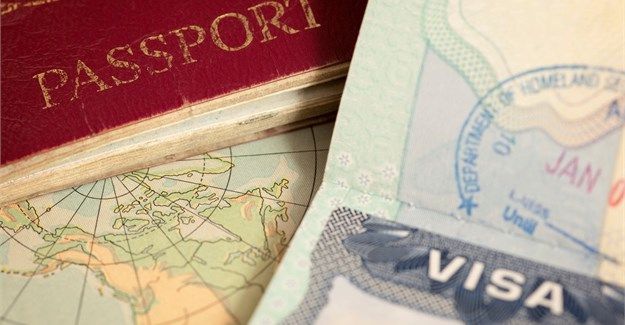
Image source: Gallo/Getty
Some good news however is that it appears that the first step has already been taken by government, in the form of relaxed visa regulations. Home Affairs Minister Dr Aaron Motsoaledi announced last week that beginning in November 2019, the Department of Home Affairs will “embark on a pilot scheme for the issuing of e-visas”. This will allow applicants to go through the entire application process online, simplifying the process and cutting out the need for applicants to visit South African embassies abroad. Additionally, the decision has been made that countries like China and India will embark on a much simpler visa application process.
Dr Motsoaledi added that travellers from Saudi Arabia, United Arab Emirates, Qatar, New Zealand, Cuba, Ghana and Sao Tome and Principe will now be able to visit South Africa without visas, a move put in place with the hopes of reciprocity. Talks have already been held with these countries, and we now await confirmation and an implementation date to be announced.
We also heard recently of the removal of the unabridged birth certificate regulations. This was ridiculous legislation constituting one of the most spectacular own goals ever scored by any government, in particular considering that it came from a South African government trying to encourage tourism growth to our shores. At last, sanity is starting to prevail!
All these changes are a bid to attract potential visitors and investors to South Africa, without making the process too challenging and, while this could result in a boom for inbound tourism, further - and more permanent - changes need to be put in place to address ever-growing issues like crime and infrastructure development. The country recently experienced another devastating bout of xenophobia, which saw over 600 Nigerians leave the country fearing for their safety.
Boosting potential tourism hot spots
As BON Hotels, we operate over 15 hotels in Nigeria, and believe that moving forward as a continent leaves no room for discrimination. We believe in the survival of Africa by Africans and, to do this, we need to employ stronger relations with other African countries, particularly those with very strong tourism links to South Africa like Kenya, Ethiopia and Namibia.
Further, necessary steps include a focus on areas within South Africa that have the potential to become tourist hot spots, if only they had adequate infrastructure. For example, the province of Mpumalanga receives a whopping R13,2bn investment in the last few years, including R4,6bn for foreign tourists and R1,8bn for domestic tourists. Despite this, the area is still far from where it could be, and desperately needs more funding to up its tourism offering.
We look forward to seeing the government taking more steps towards putting in place the initiatives crucial to improving the tourism industry. This includes skills development, and we are confident that suitable projects will begin soon, following the Minister of Tourism’s address on World Tourism Day.
In light of our government’s recent commitment to making South Africa an easier destination to do business with, and by extension to travel to, BON Hotels is confident that South Africa is at the bottom of the curve from a tourism perspective and that the next two years should spark optimism for the industry, and that this optimism must result in the growth of domestic and international tourism numbers.









































